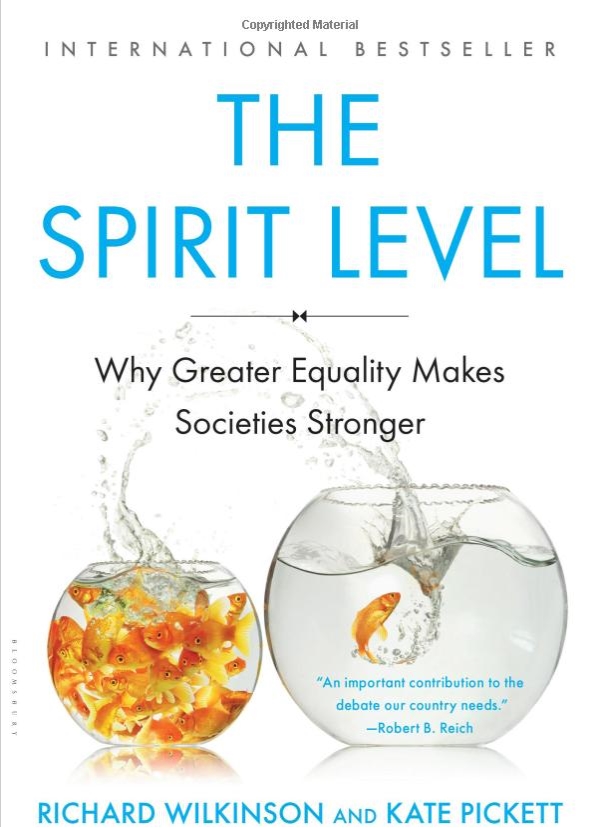
This book highlights the “pernicious effects that inequality has on societies: eroding trust, increasing anxiety and illness, (and) encouraging excessive consumption”. It shows that for each of eleven different health and social problems: physical health, mental health, drug abuse, education, imprisonment, obesity, social mobility, trust and community life, violence, teenage pregnancies, and child well-being, outcomes are significantly worse in more unequal rich countries.
A collection of Powerpoint slides regarding The Spirit Level can be downloaded here.
For a small contribution, the data underpinning the findings in The Spirit Level can be obtained here.
(Reviewed by the Guardian and Bella Caledonia). We are rich enough. Economic growth has done as much as it can to improve material conditions in the developed countries, and in some cases appears to be damaging health. If Britain were instead to concentrate on making its citizens’ incomes as equal as those of people in Japan and Scandinavia, we could each have seven extra weeks’ holiday a year, we would be thinner, we would each live a year or so longer, and we’d trust each other more.
The life-diminishing results of valuing growth above equality in rich societies can be seen all around us. Inequality causes shorter, unhealthier and unhappier lives; it increases the rate of teenage pregnancy, violence, obesity, imprisonment and addiction; it destroys relationships between individuals born in the same society but into different classes; and its function as a driver of consumption depletes the planet’s resources.
This has nothing to do with total wealth or even the average per-capita income. America is one of the world’s richest nations, with among the highest figures for income per person, but has the lowest longevity of the developed nations, and a level of violence – murder, in particular – that is off the scale. Of all crimes, those involving violence are most closely related to high levels of inequality – within a country, within states and even within cities. For some, mainly young, men with no economic or educational route to achieving the high status and earnings required for full citizenship, the experience of daily life at the bottom of a steep social hierarchy is enraging.
Perhaps the most troubling aspect of reading this book is the revelation that the way we live in Britain is a serious danger to our mental health. Around a quarter of British people, and more than a quarter of Americans, experience mental problems in any given year, compared with fewer than 10 per cent in Japan, Germany, Sweden and Italy.
Anyone who believes that society is the result of what we do, rather than who we are, should read The Spirit Level because of its inarguable battery of evidence, and because its conclusion is simple: we do better when we’re equal.
Yes Edinburgh West has a website, Facebook, Twitter, National Yes Registry and a Library of topics on Scottish Politics, including Social Justice.
